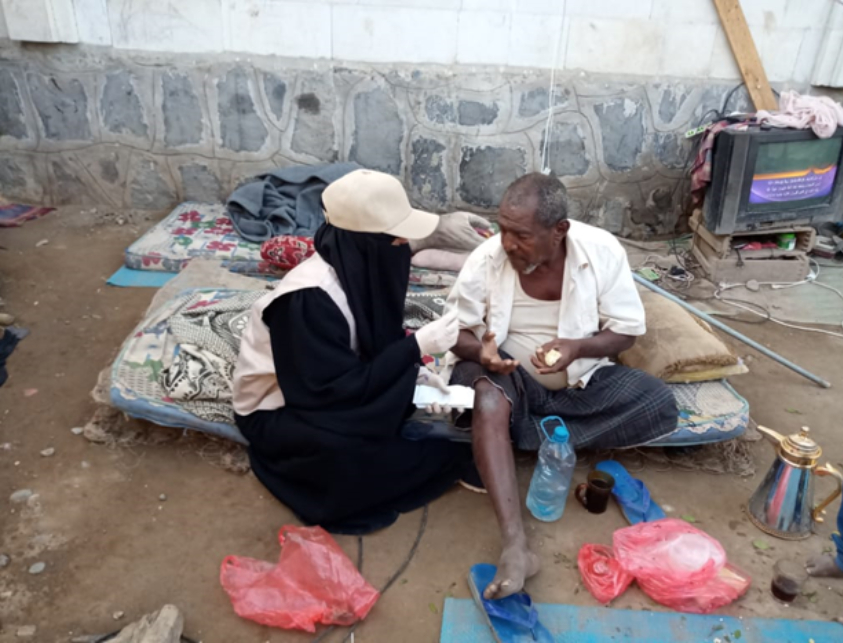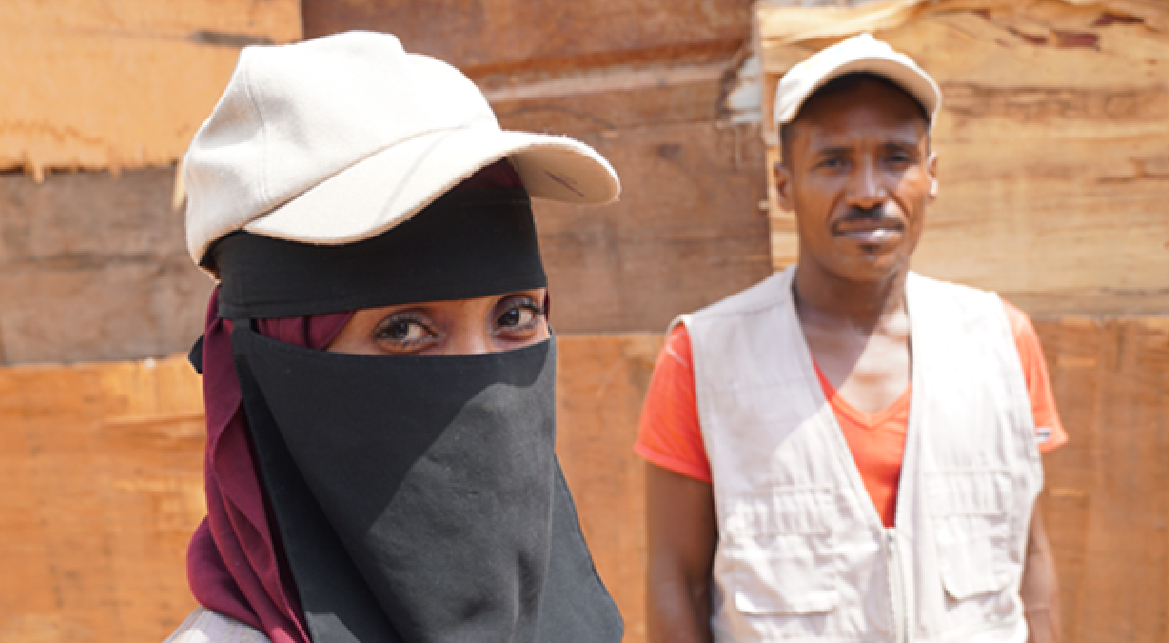My name is Mona. For a quarter-century, I’ve believed that my name says everything you need to know about me. In fact, people’s names reveal much about their personality traits as well as their life experiences.
My name starts with the letter ‘M’, which stands for the Motivation that I never lost even though I live in a camp for internally displaced people (IDPs) in Aden city in the south of Yemen. My home country is considered the world’s worst humanitarian crisis, with 80 percent of the entire population requiring some form of humanitarian aid. Like my family, which consists of seven members, an estimated four million Yemenis have been internally displaced within the country as a result of the ongoing conflict. Being a displaced person has always encouraged me to do something to help other displaced people.
The ‘O’ in my name stands for Observation. Three years ago, Yemen experienced the worst cholera outbreak in modern times. No matter how hard I try, I’ll never be able to forget the suffering of young children I observed who have contracted cholera. In IDP camps, contaminated water has always posed a risk for the inhabitants. The lack of sewage systems and latrines forces people to relieve themselves in the open, and the lack of clean water is another threat to IDPs’ health – the majority of people transfer water from water points to their tents using unclean cans. The smell inside the camp was unbearable, and I was constantly worried that my people would get infected with cholera, malaria, and the latest COVID-19.
When CARE started to form the rapid response teams in Dar Saad district of Aden governorate, I decided to volunteer with them to help my community. With funding from the Yemen Humanitarian Fund (YHF), the rapid response teams worked to improve communities’ preparedness and prevention through distributing hygiene kits and promoting good hygiene practices like handwashing, food hygiene and proper use of latrines. I went on house-to-house visits, educating the households on how to use hygiene items and chlorine taps to control the cholera epidemic and prevent further infections. I used to feel tremendous joy when giving hygiene kits to displaced families. During my visits, I always focus on educating the children because they are the most vulnerable, in addition to their amazing ability to adapt and change their families’ behaviours. I noticed that communicable diseases began to decrease in the camp, especially among children, as a result of the increased awareness. Being a Non-self-centred person is what the ‘N’ in my name stands for.




